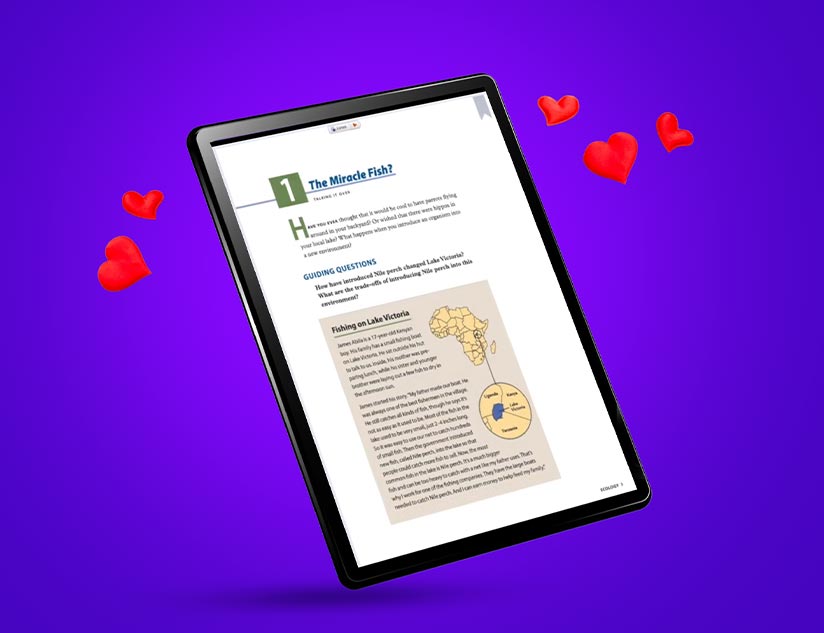With the COVID-19 outbreak, the use of technology and the importance of EdTech companies in the education sector have rapidly accelerated. The global pandemic has opened the doors for national publishers to explore the international markets as well. And, those who wish to gain an edge in the future are adapting to the newer ways to ride the change.
It is estimated that the eLearning market will reach the $375 billion mark by 2026. This, therefore, seems like a good time for publishers, especially those publishing online eBooks, to explore new regions. However, going global isn’t as easy as it might seem, and high-quality content might not be enough to establish a strong footprint.
What publishers need is a powerful digital publishing platform. With the right features and functionalities, such learning platforms can offer the opportunity to grow revenues and maximize monetization of content. eBook distribution across geographies can also be eased with the right digital platform.
Taking the Digital Route
Traditional book publishing included several crucial steps such as proofreading, copyediting, book development, designing, printing, formatting, distribution, and marketing. All this is not just time-consuming but also resource-intensive and costly. Plus, it requires a huge in-house team to create, print, and distribute the books.
On the other hand, the interactive and 24/7 accessible content created with the help of digital learning platforms is convenient for students and cost-effective for publishers. That is why the medium of book consumption is gradually shifting from physical books to digital devices. In fact, the global book publishing industry has experienced an annual decline of 1.1%, on average, between 2016 and 2021.
Large publishing houses have realized this shift and are already making efforts to go digital. They have made significant investments in building or renting digital publishing platforms to remain competitive.
Many countries have begun investing in digital learning tools. For instance, Chinese tech giants like Xiaomi and Baidu are actively participating in the changing EdTech landscape. This is because Chinese readers are ready to pay for high-quality editorial content, while the e-reading penetration rate is increasing. Just like China, other countries are also showing promising scope in the online eBooks publishing industry.
This rising global demand is an excellent opportunity for publishing houses to make the right investments and take their business global. If they can reach out to all relevant consumer touchpoints, they can actually cut through the noise and connect with the right audience in the process.
How Can a Digital Publishing Platform Help?
Take a look at 4 major ways the right digital publishing platform can help publishers penetrate international markets.
1. Cost Savings
With a digital eBook publishing and distribution platform, publishers don’t just save on money, they also save time and resources. With a powerful content authoring feature, publishers have access to an easy and intuitive way to create, modify and update content very quickly
The designing process of a typical traditional textbook may take up to 17 months. Publishing houses don’t have the luxury of time in this competitive market. Moreover, the growing demand for eBooks necessitates a prompt solution. However, the content authoring tool can help publishers cut time to market by up to 40%, with thousands of in-built themes and templates. Also, the high customizability means that a complete branded experience can be offered to users.
Publishers can also easily convert their legacy content, whether print or any other format, into IDPF-compliant ePub3 format with just a click.
2. Ease of Content Distribution
With a powerful, cloud-based digital publishing platform, the world is your oyster. It eases reach anywhere in the world and ensures optimal performance of the publisher’s branded web and/or mobile app. In fact, they even can choose to host data at a physical data center in any region of their choice.
In addition, if the platform is integrated with a white-label e-Commerce store, publishers can ensure eBook distribution via direct sales using secure payment gateways. This can ease monetization of content. With the right platform, they need not worry about controlling content access either. They can rely on robust digital rights management tools to prevent content piracy and support multiple licensing models.
3. Data-Driven Business Decisions
To be successful in a new market, strategic business decisions, based on analytics, are vital. With a digital publishing platform armed with a powerful analytics engine, publishers can track their eBooks distribution patterns in real-time. They can also get customized analytics and easy-to-understand reports on content consumption patterns, which can help with decisions regarding which types of content work best in specific regions. Content can also be modified quickly, based on analytics regarding engagement levels.
4. Compliance with Industry Standards
Many countries have laws that protect user privacy online. For instance, GDPR is the law that protects data privacy in the EU, while FERPA and COPPA ensure student data privacy in the United States. A learning platform that is compliant with the regulations offers great peace of mind.
In addition, compliance with industry standards, such as TinCan API, LTI, QTI, ePub3, etc., ensure easy interoperability, and third-party integrations. With this, publishers can offer a complete solution to their customers.
MagicBox™ is an award-winning digital content creation and publishing platform, built specifically to address the needs of publishers. With carefully curated features, this is a one-stop solution for publishing houses that wish to enter new markets. Contact us to know how we can help your business penetrate the international markets.













